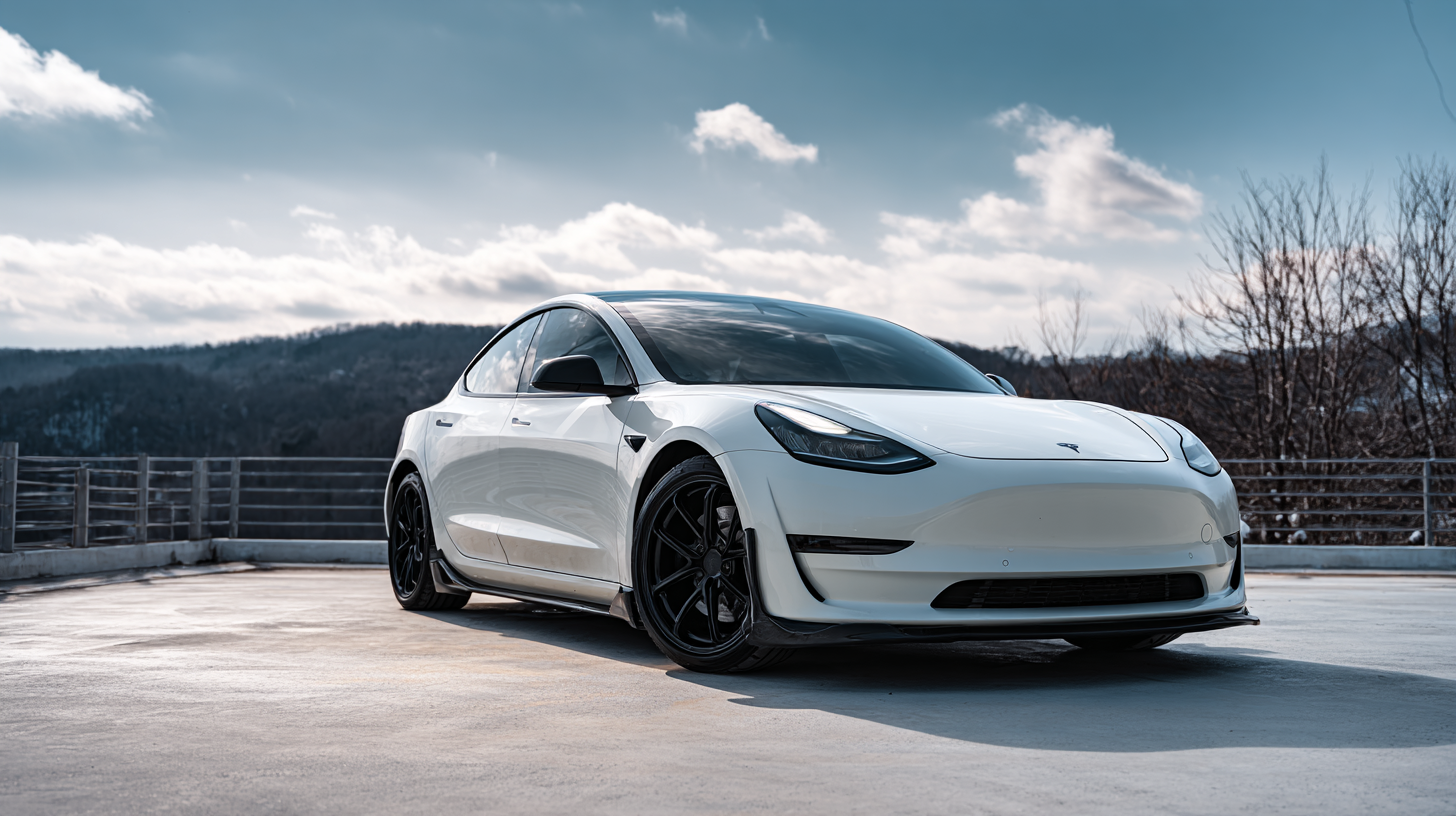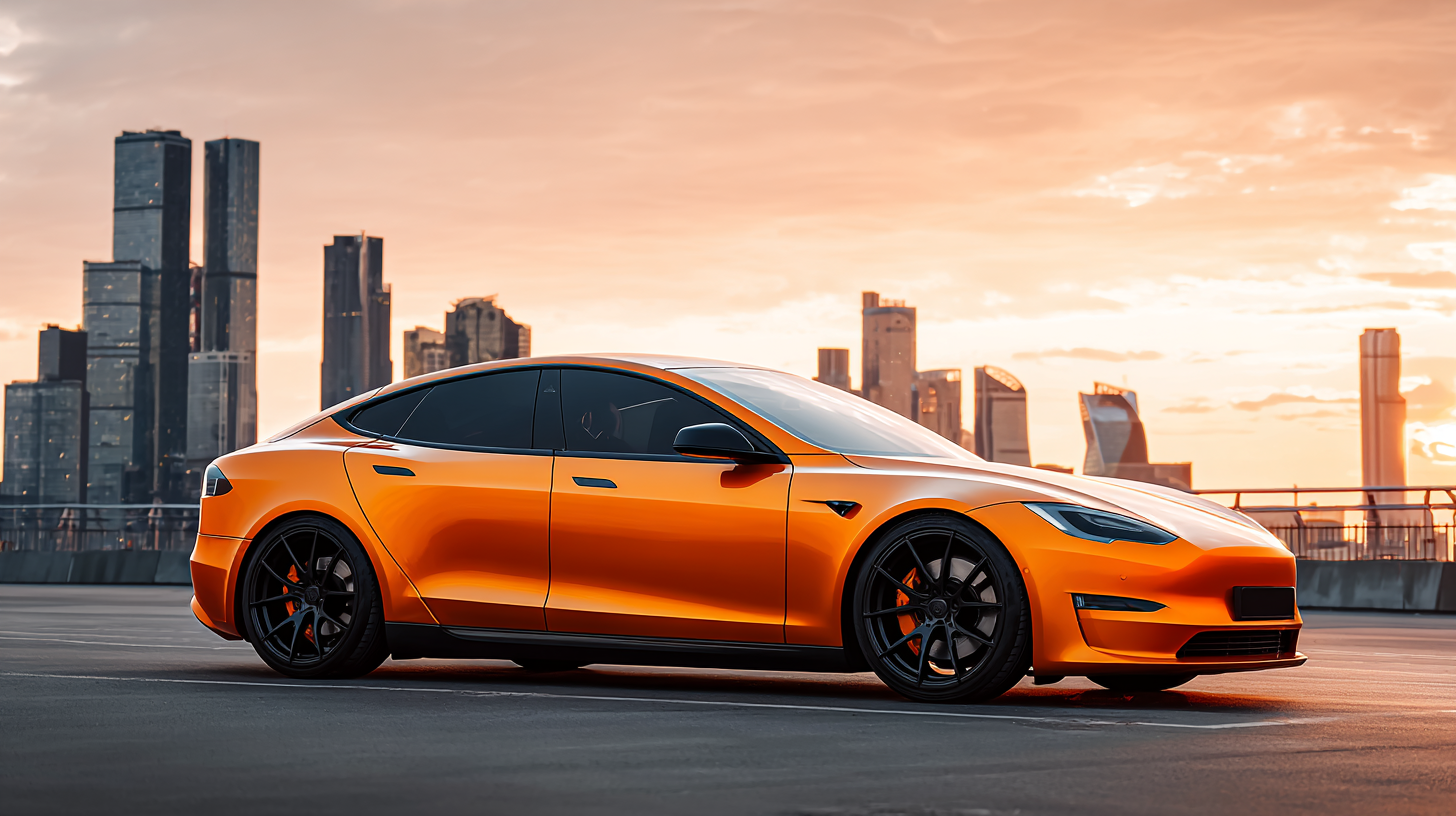Leave Your Message
The electric vehicle (EV) market is rapidly evolving, with consumer demand and global sustainability goals driving innovation and competition among manufacturers. According to a report by the International Energy Agency (IEA), global EV sales reached 10 million in 2022, a remarkable increase of 55% compared to the previous year. This growth highlights the importance for buyers to identify the "Top Rated EV Cars" that not only meet their individual needs but also align with broader environmental objectives. Key features such as range, charging infrastructure, performance, and safety ratings have become essential criteria that buyers must consider when selecting an EV. As we delve into the specifics, we will explore the attributes that distinguish the highest-rated models in the market, ensuring that both new and seasoned buyers can make informed decisions in this dynamic landscape.

When considering electric vehicles (EVs), one of the most crucial features for global buyers to evaluate is battery range. The battery range directly impacts the usability and convenience of an EV, essential for both urban commuting and long-distance travel. Recent advancements in lithium-ion battery technologies have significantly improved energy densities, allowing many models to achieve ranges exceeding 300 miles on a single charge.
 For instance, next-generation lithium-sulfur batteries are being developed to meet high-energy targets, which promise even greater ranges and lightweight designs.
For instance, next-generation lithium-sulfur batteries are being developed to meet high-energy targets, which promise even greater ranges and lightweight designs.
In addition to range, the sustainability of the battery's life cycle has become increasingly important. The entire value chain of EV batteries, from production to end-of-life, presents sustainability challenges that necessitate comprehensive approaches. Research highlights the potential benefits of urban mining for end-of-life batteries, thus promoting a circular economy. This indicates that buyers should also look for EVs that consider the environmental impact of battery recycling and management, which is critical as the global market for electric vehicles expands rapidly. In doing so, consumers not only enhance their driving experiences but also contribute to a more sustainable future.
When considering the purchase of electric vehicles (EVs), one of the most critical factors for global buyers is the charging infrastructure. As EV adoption increases, the availability and access to charging stations become paramount. Buyers should evaluate the density of charging networks in their region, including fast chargers along major travel routes, which can significantly reduce downtime during longer trips.
**Tips:** Investigate apps or websites that provide real-time data on charging station locations, availability, and types of chargers (Level 2 or DC fast charging) to plan your journey effectively. It’s also wise to consider purchasing a home charging solution to ensure convenience between daily commutes.
Another aspect that buyers should take into account is the compatibility of the vehicle with various charging networks. Some manufacturers partner with specific charging companies, which may limit access depending on your location. Understanding these partnerships and their implications can help avoid potential inconveniences.
**Tips:** Research the most common charging networks in your area and check if the EV model you're interested in offers universal or limited compatibility with those systems. Additionally, inquire about any membership benefits that may provide access to exclusive charging deals or discounts, enhancing your overall ownership experience.
When considering top-rated electric vehicles (EVs), performance specifications such as acceleration, speed, and handling play a pivotal role in the buying decision. Acceleration, often measured from 0 to 60 mph, is a critical metric that showcases the responsiveness of an EV. The rapid torque delivery from electric motors allows many modern EVs to achieve impressive acceleration times, often comparable to or better than their gasoline counterparts. Buyers should look for vehicles that offer swift acceleration, as this enhances the driving experience, particularly in urban settings where quick maneuvers are sometimes necessary.
Speed and handling are equally important features that can significantly impact the overall performance of an EV. Many high-rated EVs not only provide competitive top speeds but also feature advanced engineering that ensures a smooth and stable ride. This involves elements such as low center of gravity due to battery placement, which enhances cornering capabilities and minimizes body roll. Prospective EV buyers should test drive various models to assess handling and comfort, ultimately ensuring they select an EV that not only performs well but also aligns with their driving style and preferences.
| Model | Acceleration (0-60 mph) | Top Speed (mph) | Handling Score (out of 10) |
|---|---|---|---|
| Model A | 3.5 seconds | 150 mph | 8 |
| Model B | 4.0 seconds | 140 mph | 9 |
| Model C | 3.2 seconds | 155 mph | 9 |
| Model D | 5.0 seconds | 130 mph | 7 |
| Model E | 3.8 seconds | 145 mph | 8 |
When considering the safety of electric vehicles (EVs), it's essential to analyze both industry standards and consumer reports that reflect real-world performance. Organizations like the National Highway Traffic Safety Administration (NHTSA) and the Insurance Institute for Highway Safety (IIHS) provide rigorous safety evaluations to help consumers make informed decisions. These ratings are critical, as they assess various factors, including crash test results, accident avoidance technologies, and the robustness of the vehicle's structure. High ratings from these organizations often indicate that a vehicle has undergone extensive testing and meets stringent safety criteria.
In addition to formal ratings, consumer reports play a significant role in highlighting EV safety. User experiences can reveal insights about the vehicle's reliability and performance under different conditions. Features such as automatic emergency braking, lane-keeping assist, and advanced airbag systems are more than just selling points; they are vital components that can enhance driver and passenger safety. By combining the insights from professional ratings with anecdotal evidence from actual users, prospective buyers can gain a comprehensive understanding of an EV's safety profile, ultimately guiding their purchasing choices in a rapidly evolving market.
As electric vehicles (EVs) continue to gain traction in the global market, the importance of advanced infotainment systems and connectivity cannot be overstated. The electric vehicle infotainment market is projected to reach $20.1 billion by 2030, driven by the integration of smart technologies and the growing demand for enhanced user experiences. Modern EVs are transitioning from being merely modes of transportation to becoming connected hubs that offer real-time information, entertainment, and navigation, all of which are essential features for tech-savvy consumers.
Moreover, the integration of semiconductors in the automotive industry plays a pivotal role in supporting these infotainment advancements. These tiny chips enable various functionalities, including advanced driver-assistance systems (ADAS) and vehicle-to-everything (V2X) communication, which enhance the overall driving experience and safety. As EVs evolve, consumers will increasingly look for vehicles that offer robust connectivity options, allowing seamless integration with personal devices and access to cloud-based services.
The future of multi-screen infotainment in EVs is particularly promising, as studies suggest that innovative interfaces can significantly improve driver and passenger interaction. This shift not only helps in providing a more engaging experience but also addresses crucial sustainability goals by promoting energy efficiency and reducing dependency on conventional fuels. The rise of smart tech in electric vehicles represents a crucial development that aligns with the industry's move towards a more sustainable and connected future.







